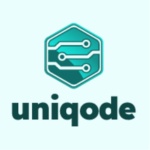Create a ebook using agents and language models
Here is my recent talk for the nlp summit 2024 where I go through how to create a ebook using code. If you are interested in learning more and writing your own ebook - drop me a comment below.
1
0

Google Gemini - An Agent Worth Exploring
This week, let’s highlight Google Gemini, an innovative generative AI agent designed to enhance user interactions. 1. What is Google Gemini? Gemini is a powerful AI tool integrated into Google’s search engine, capable of understanding complex queries and providing detailed responses. 2. How to Use Gemini: - Enhanced Search: Users can ask nuanced questions, and Gemini will generate comprehensive answers, making information retrieval more efficient. - Content Creation: Gemini can assist in drafting articles or summaries based on user prompts, streamlining the writing process. 3. Getting Started: Simply use the Google search bar to ask questions or request content generation. Gemini's AI capabilities will enhance your search experience. By leveraging Google Gemini, you can improve your information gathering and content creation efforts. If you have questions or need assistance, feel free to reach out!
1
0
Generative AI Agent Spotlight: Jasper
We all talk about ChatGPT. This week, let’s talk about Jasper (another powerful GenAI agent designed for content creation). 1. What is Jasper? Jasper is an AI writing assistant that helps users generate high-quality written content quickly and efficiently. 2. How to Use Jasper: - Blog Posts: Generate ideas and outlines for articles or complete drafts in minutes. - Social Media: Create engaging posts tailored to your audience with just a few prompts. - Marketing Copy: Write compelling ad copy or product descriptions that resonate with customers. 3. Getting Started: Sign up for Jasper’s platform, choose your content type, and start generating with simple prompts.Using Jasper can save you time and boost your creativity. If you have questions or need assistance, feel free to reach out!
2
0
The Rise of Generative AI Agents
Generative AI agents are transforming industries by mimicking human behavior in interactive and believable ways. Here are the key points: 1. Definition and Functionality: These agents can observe, act, retrieve, reflect and interact with others, enhancing customer service, healthcare and cybersecurity. 2. Impact on Customer Service: They personalise interactions, remember past conversations, and anticipate needs, improving service quality and productivity. 3. Applications and Challenges: Data quality issues and employee distrust are important to consider. 4. Future Potential: As technology advances, these agents will automate processes and augment human capabilities, potentially transforming work across various industries.
1
2
New comment Sep 7
Mistral AI - now with agents!
Mistral AI has announced the alpha release of its new model with agent functionality. This update allows developers to wrap models with additional context and instructions, enabling custom behavior and workflows through a simple set of instructions and examples. The agents can be used on platforms like Le Chat or via API, leveraging the advanced reasoning capabilities of Mistral Large 2. This feature aims to facilitate the creation of complex workflows that are easily shareable within organizations. Mistral AI is also working on connecting these agents to various tools and data sources. Build, tweak, repeat | Mistral AI | Frontier AI in your hands https://mistral.ai/news/build-tweak-repeat/
2
0

1-9 of 9

skool.com/generativeai
Learn and Master Generative AI, tools and programming with practical applications at work or business. Embrace the future – join us now!
powered by



